His freshman campaign was notable. Watching him play at the Times Union Center and assist Cornell to its twelfth Whitelaw Cup was impressive. His speed and opportunism took center stage. They had no small part in guaranteeing that Cornell left Albany victorious.
Cornell confronted Brown in the 2010 ECAC Championships Semifinals. The Bears proved not to be a match for a very hot and reliable Scivens between the Big Red's pipes, but it was Esposito who dazzled on offense in that game. He contributed two points during that game. He fed Locke Jillson with a great assist that opened the scoring and then just over ten minutes later converted an opportunity for a goal that put Cornell over Brown 2-0. The final score would be 3-0, but the importance of Espo's role in the game can scarcely be overstated.
Esposito did not appear again on the score sheet during the two remaining games of the 2009-10 season. However, his role in penalty killing during the 2010 ECAC Championships Final against Union was crucial because it was he who tired the Leaman-led Dutchmen with his impressive speed. His opportunism and swiftness allowed the Red to change lines while he advanced the puck into Union's zone on several occasions. His tenacity to chase down the puck, especially aggressively into the corners, was of such a nature that it would make Ned Harkness smile (For those who do not know, Harkness remarked famously that "[i]f a player won't go in the corners, he might as well take up checkers"). His freshman-year contributions allowed Cornell to bring home its twelfth Whitelaw Cup. Let's hope that it is not the last time he helps the Red do that.
Last season did not mark a downturn in such a trend. However, misfortune deprived Esposito of what would have been the most crucial out-of-conference goal for Cornell in the 2011-12 regular season. Cornell's seeding would have been much higher heading into the 2012 NCAA Tournament had the Hockey East officials at Madison Square Garden made a different call at 2011 Red Hot Hockey.
The video below shows the sequence of events. Esposito takes a hard shot at the blue line. The puck takes an odd deflection, goes into the air, strikes neither the netting nor ceiling, falls back onto Millan's back, and banks into BU's net. The puck crosses the plane of the goal line before the whistle is blown, but the referees on the ice overruled the decision of those in the video reviewing booth to conclude that the on-ice officials had intent to blow the whistle before the puck crossed the plane of the goal line. It was the regular-season game with the anticipated highest stakes while being played on the biggest stage. Esposito's goal would have been the game-winning goal for Cornell at 2011 Red Hot Hockey.
Injuries have plagued periods of Esposito's career. He missed six games that encompassed almost the entire length of January for the 2010-11 season. His junior year, he missed 11 games that spanned from mid-January 2012 through the end of February 2012. The exception within that timeframe was Esposito's return to play the weekend series against Brown and Yale in February.
The role of Esposito with respect to the team is undeniable. Cornell went 3-3-5 while Esposito was out for injury during the 2011-12 season. In Espo's absence, Cornell had a winning percentage of 0.500. This record is significantly below the season-long average of 0.643. It is apparent statistically that even when Esposito does not appear on the box score, that he motivates and generates for the Big Red. The 2011-12 playoff run-up and playoff season demonstrated this fact clearly.
Esposito missed seven games due to injury, but with an Ivy-League title on the line, he chose to play the weekend against Brown and Yale on February 10 and 11. Cornell had beaten only Dartmouth in the span before that weekend while he was injured. Esposito's return immediately changed the pace and demeanor of the game.
Cornell seemed energized to win its first Ivy-League title in seven years. One cannot help but think that Espo had a large part to do with re-energizing the team. He totaled a point and an assist over that weekend, both against Brown, but his play and the opportunities that he generated in the Yale game ensured that Cornell would claim an Ivy-League title for the 2011-12 season. For playing with a significant injury, he seemed to jump into play quickly, tenaciously, and effortlessly.
Injury kept Eposito out for the remaining portion of the regular season. An end-of-the-regular-season loss to RPI cost Cornell the chance to win a ninth regular-season title, but Cornell had won the only regular-season title that is given some weight among the Faithful. Espo used Cornell's earned bye as the second seed in the 2012 ECAC Tournament to nurse his injury.
Dartmouth arrived on East Hill for the 2012 ECAC Quarterfinals and after almost two weeks of rest, Esposito contributed immediately. The first game on Friday evening saw him score two goals and work feverishly to get a hat trick. Esposito and Miller generated many of the best opportunities in what would become the longest men's ice hockey game in the history of Lynah Rink, but Sean Whitney would be the player to end the game after almost two overtimes. The following night, even though Dartmouth was particularly physical toward the injured Esposito, he found the chance to provide an assist on the first goal of the game that began a cascade that would lead to a convincing Cornell win of 3-1 over Dartmouth to advance to the 2012 ECAC Championships.
Esposito's crucial role did not disappear when Cornell traveled out west to the NCAA Midwest Regionals in Green Bay, Wisconsin. Even though Ferris State ultimately would eliminate Cornell and prevent the Big Red from earning a 2012 Frozen Four berth, Esposito fought tirelessly into the last seconds of that game to prevent such a result. He played still injured, but with an impressive passion and tenacity. He seized upon many opportunities generated from backchecking to outrace Ferris State players down the ice, took several shots, and generated many opportunities, but the Bulldogs's Nelson did not allow any chances to slip by him in the waning minutes after Ferris State went up 2-1. Esposito never tired. He never quit. We know that he will not do either when Cornell seeks to return to the pinnacle of the sport in Pittsburgh in 2013.
One must keep in mind that Esposito played eight games of the 2011-12 season injured. Furthermore, both his sophomore and junior years were hampered with fewer games due to injury. Injuries likely reduced his production during both seasons. Both seasons witnessed significant improvements over their respective preceding season. Relative to the team, Esposito, even injured, was among the top ten producers of points on Cornell's roster. He ranked ninth despite serious injury. He is among the top eight of those players who return for the 2012-13 season. In terms of offensive production as a factor of points per game, Esposito is tied for fourth on the current roster.
Espo's contributions, both quantifiable and qualifiable, are enormously important to Cornell. His ability to force turnovers, handle the puck, and outmaneuver all opponents makes him crucial to a Schaferian system that emphasizes puck possession. We hope that Esposito can remain healthy during the entirety of the 2012-13 season. He will be crucial to the team in achieving its lofty goal for this coming season. His skill and high energy will be essential to the team as it has been for all seasons previous.
Perhaps to ensure that he can keep his energy as high as is needed to drive the Big Red juggernaut forward as he has in the past, we need to make sure that he gets his requisite rest. He jokes often about his habit of taking naps before games. We embrace his gameday rituals. They certainly pay off. We cannot wait to see Esposito scorch the ice in just 26 days for the beginning of the 2012-13 regular season against Colorado College.

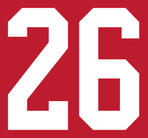
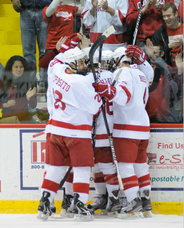
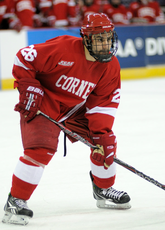
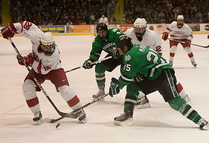
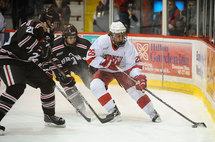

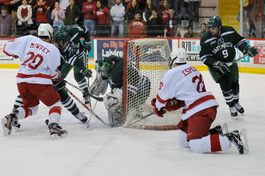
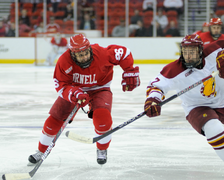
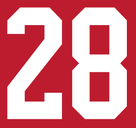
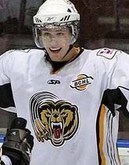
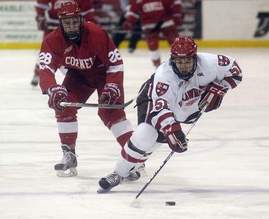
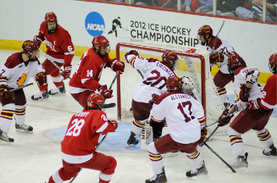
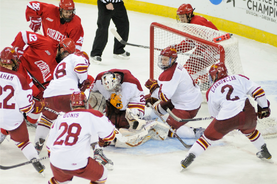
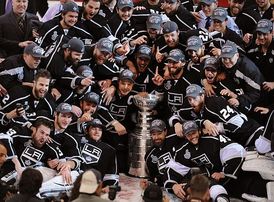
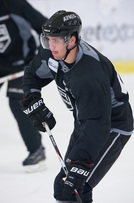
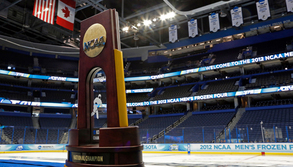
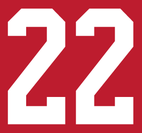
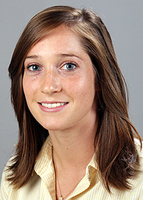
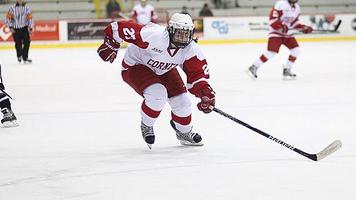
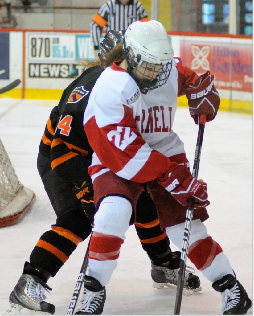
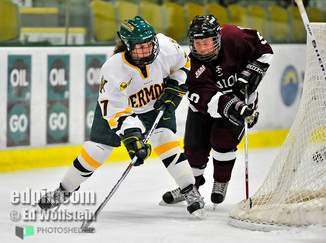
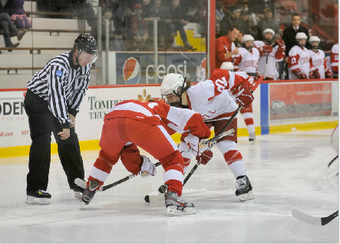
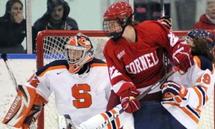
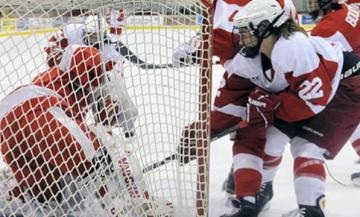
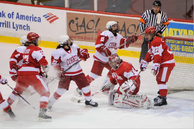
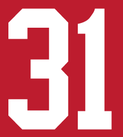
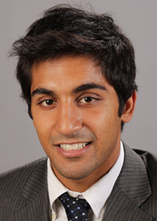
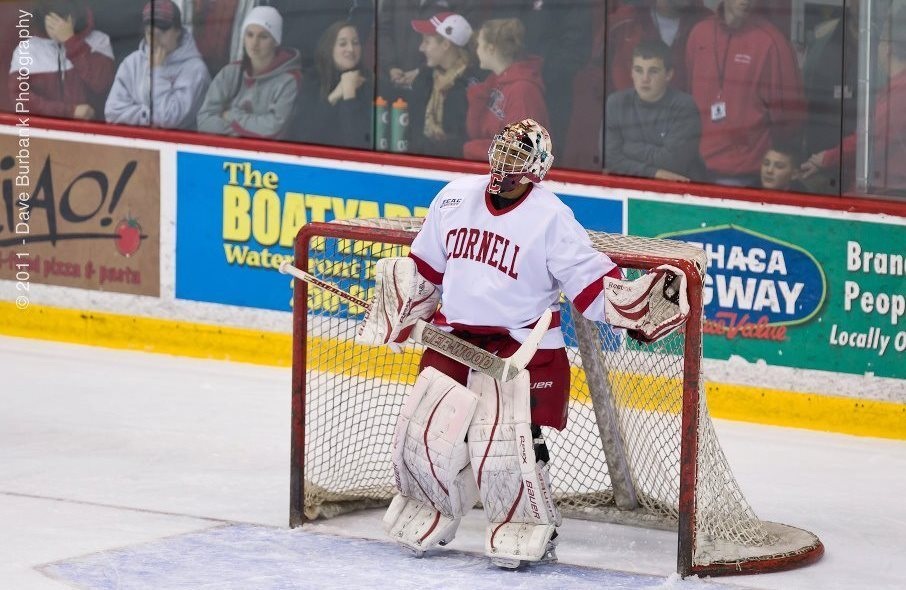
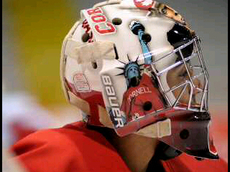
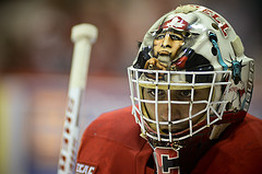
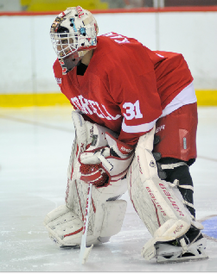
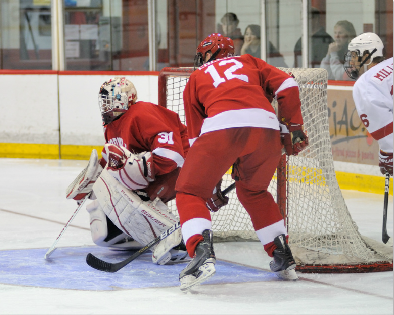
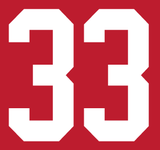
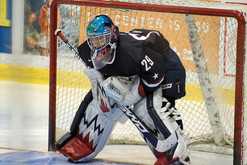
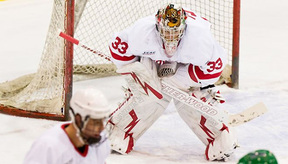

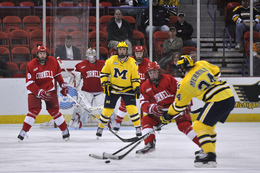
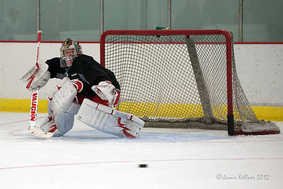
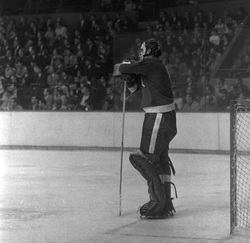
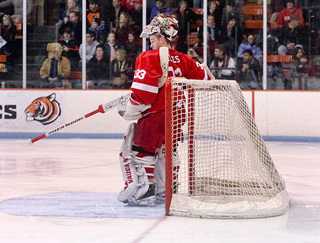
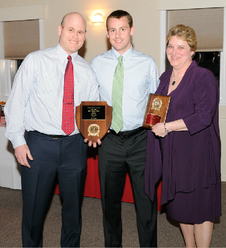
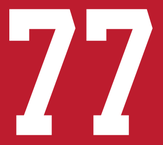
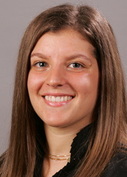
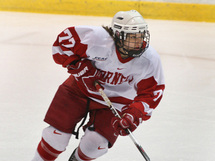
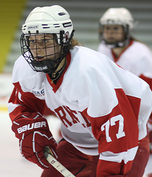
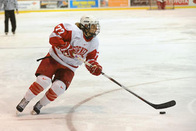
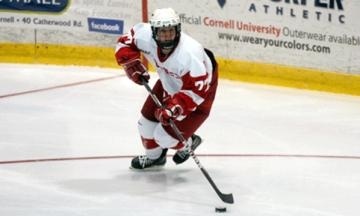
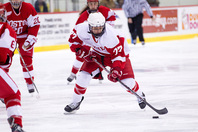
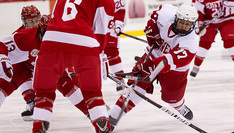
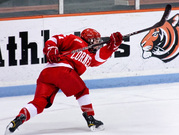
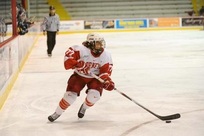

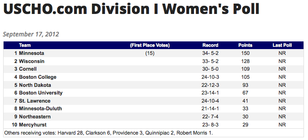

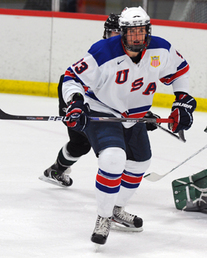
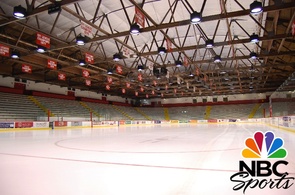
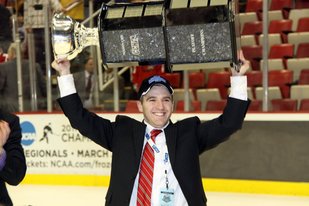
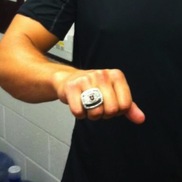

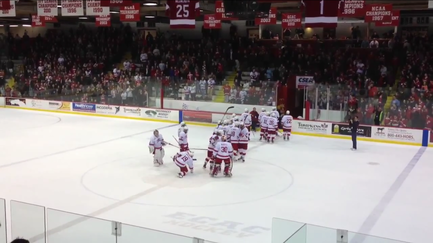

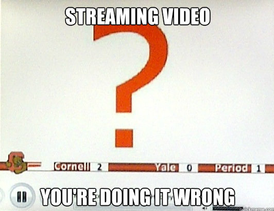


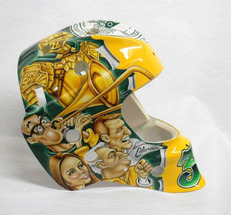
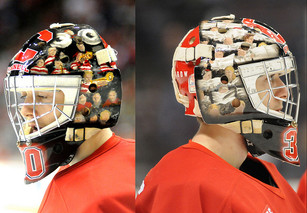
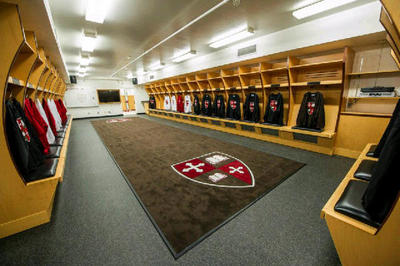
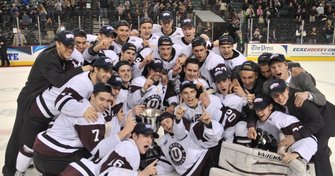

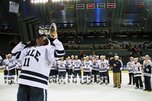

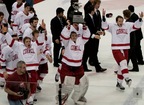
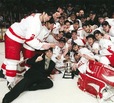
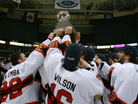

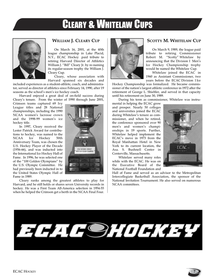
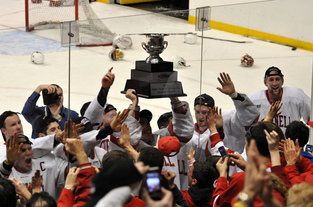
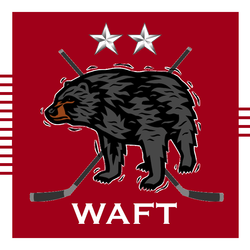

 RSS Feed
RSS Feed
